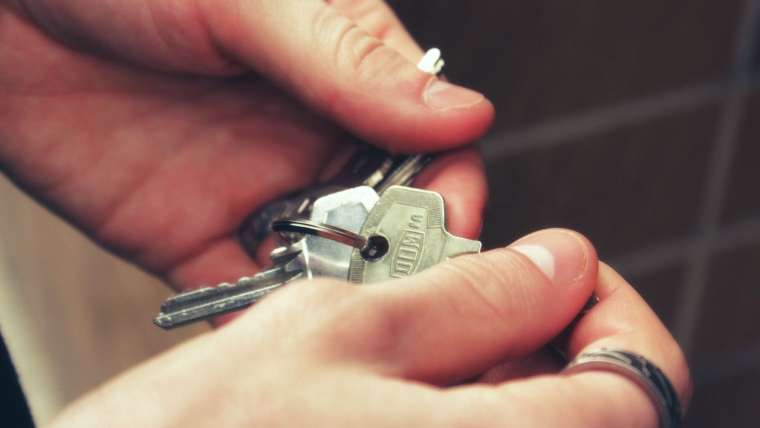Common conflicts in the return of rental deposits
At the end of a rental contract, the landlord is legally required to return the deposit received at the beginning of the agreement. This deposit is typically used to cover any damages to the property or outstanding expenses. Although this process should be straightforward and automatic, it can often become very complicated. The return of the deposit frequently leads to conflicts, turning what was an amicable rental relationship into a legal dispute. The key to avoiding these situations is to understand and properly manage the legal and contractual obligations from the outset.
Proverbs and challenges in returning a deposit
Spanish proverbs offer valuable insights into the difficulties associated with returning money, especially when it comes to deposits. One particularly relevant saying is “He who becomes a guarantor, ends up paying.” This expression reflects the reality that, often, those who give money as a deposit may struggle to recover it.
This problem is common in urban rental contracts. When the deposit is given, the landlord might confuse these funds with their own money, complicating the return when the contract ends. In many cases, landlords do everything possible to avoid returning the deposit, and the tenant faces numerous challenges in recovering their money. This issue needs to be addressed early on to prevent more significant conflicts later.
Mechanisms to avoid litigation in deposit returns
To reduce the likelihood of conflicts over deposit returns, it’s essential to include clear mechanisms in the rental contract. Although these details are not always considered at the time of signing, they can prevent future disputes. A proactive approach in drafting the contract can facilitate the resolution of disputes, ensuring that both parties have clear expectations from the beginning.
Including clauses that facilitate deposit returns
An effective way to prevent conflicts is to include specific clauses in the contract that describe the procedure for returning the deposit. For example, it can be agreed that at the end of the contract, both parties will conduct a joint inspection of the property. This inspection should be documented in a detailed report, including the condition of each room and any observed damages.
The contract can also provide for the possibility of appointing an independent expert to conduct an objective evaluation if there is a disagreement about damages or their assessment. This expert would be tasked with preparing a report within a short period, allowing both parties to reach an agreement without the need for legal action. Establishing these procedures early on helps minimize misunderstandings and ensures a more transparent and fair process.
The importance of an amicable agreement
In many situations, it is preferable to reach an amicable agreement, even if it means compromising on some aspects. If both parties act in good faith, a portion of the deposit may be retained for items such as cleaning or minor repairs. However, the goal should always be to avoid litigation. An agreement, even if imperfect, is generally better than a long and costly legal battle.
Legal obligation to deposit the deposit with official bodies
In some autonomous communities, such as the Valencian Community, there is specific legislation that requires landlords to deposit the rental deposit in an official bank account. The Consell’s Decree 46/2022 regulates this process and establishes penalties for landlords who do not comply with this obligation. However, it is important to note that this legislation mainly concerns the relationship between the landlord and the administration, offering little direct benefit to the tenant in terms of facilitating the return of the deposit.
Implications of depositing the deposit
Depositing the deposit in an official account is a mandatory procedure that the landlord must comply with at the start of the contract. This deposit ensures that the funds are available for return at the end of the rental period. However, this legislation usually has little direct impact on the relationship between landlord and tenant, as the process of returning the deposit still depends on the agreement between both parties and the fulfillment of the contract terms.
Inclusion of additional guarantees in the deposit
One important recommendation is to include any additional guarantees agreed upon in the contract in the official deposit. This provides greater security to the tenant, as all the deposited amounts will be under the same legal protection. While this practice is not mandatory in all autonomous communities, it can prevent future conflicts by ensuring that all funds delivered are subject to the same return rules.
Steps to take before returning the keys
To avoid problems with the return of the deposit, it is advisable for the tenant to take certain precautions before returning the keys. Documenting the condition of the property is one of the most important steps a tenant can take to protect their rights.
Documentation and evidence
Before returning the keys, the tenant should take a detailed photographic record of the property, including all rooms and any relevant details. This record, along with a document describing the condition of the property, should be presented to the landlord for review and signature before the keys are handed over. This document serves as a formal agreement between the parties and can be crucial if a dispute arises.
The importance of an agreement before returning the keys
Reaching an agreement before returning the keys is crucial. Once the tenant leaves the property and hands over the keys, they lose much of their ability to negotiate the return of the deposit. Therefore, it is essential that both parties agree on any possible deductions from the deposit before the tenant leaves the property. This agreement should be detailed and in writing, specifying the amounts retained and the time frame in which the rest of the deposit will be returned.
 Refusal to receive or hand over the keys due to disagreement
Refusal to receive or hand over the keys due to disagreement
In some situations, there may be a disagreement between the landlord and the tenant about the condition of the property or the deductions from the deposit. In these cases, it is important to act cautiously to protect the rights of both parties.
Appointment of an expert
If a disagreement prevents the keys from being handed over, one solution is to appoint an independent expert to make an impartial assessment of the condition of the property. This expert should provide a detailed report on the damages and their assessment, which can serve as the basis for resolving the conflict. With this report, the tenant can request the return of the deposit from the landlord, proposing a reasonable amount to be withheld in case of damages.
Consequences of handing over the keys without an agreement
Handing over the keys without a prior agreement on the deposit can be a costly mistake for the tenant. Once the keys have been handed over, the tenant loses control of the situation, and their chances of recovering the deposit decrease significantly. For this reason, it is vital to ensure that any disagreements are resolved before the keys are handed over, whether through an amicable agreement or with the intervention of an expert.
Judicial claim for the return of the deposit
If an agreement cannot be reached, the tenant may be forced to resort to legal action to recover their deposit. This is a process that should be considered only as a last resort, given its complexity and the associated costs.
Judicial procedure and complications
The judicial process to claim the return of the deposit is generally carried out through a verbal trial, especially when the amount claimed does not exceed 2,000 euros. In these cases, the assistance of a lawyer and the representation of a solicitor are not mandatory, meaning that the tenant will have to file their own claim in court.
However, facing a landlord who may hire a lawyer to defend themselves can significantly complicate the claim. Therefore, it is advisable to try to resolve the conflict amicably before resorting to legal action. Hiring a lawyer to make an extrajudicial claim may be a more effective and less costly option.
Costs and risks of the judicial process
Taking the judicial route involves not only financial costs but also a considerable risk of losing the case. If the landlord presents a strong defense, the tenant could find themselves in an unfavorable situation, with little chance of recovering their deposit. Therefore, this route should only be considered when the amount in dispute is significant and justifies the costs associated with the judicial process.
Before reaching this point, it is always preferable to try to resolve the conflict amicably, through direct negotiations or with the help of a lawyer who can mediate between the parties.
Lawyer in Alicante (Spain) Carlos Baño.
In our law firm, we are experts in real estate law. If you have any questions, we are here to help.



